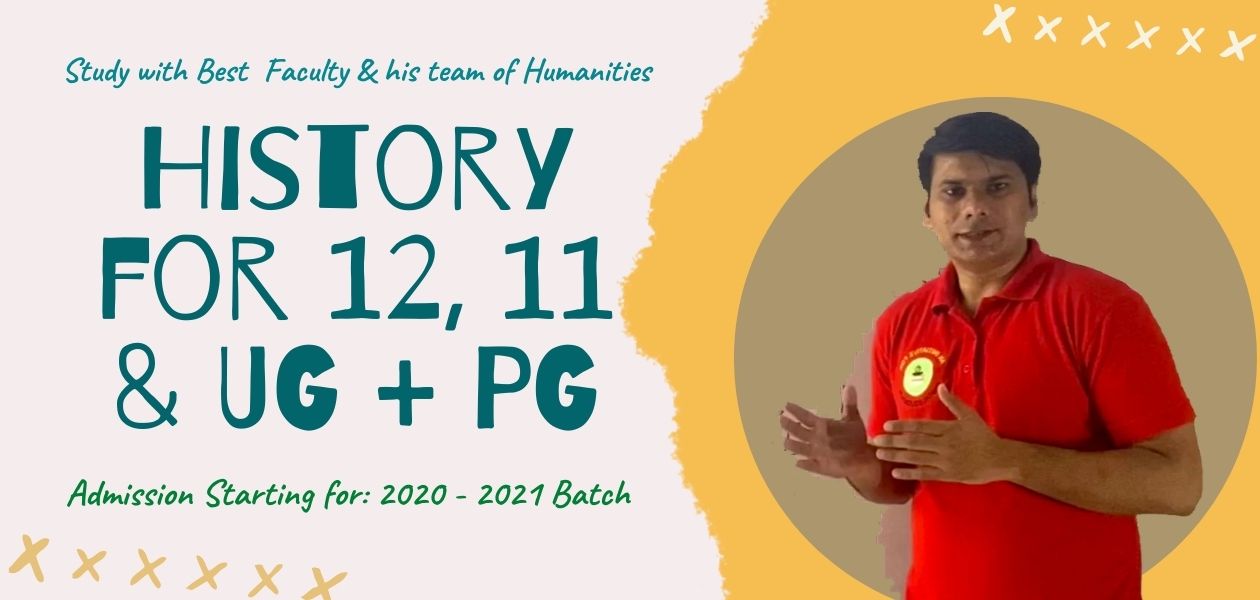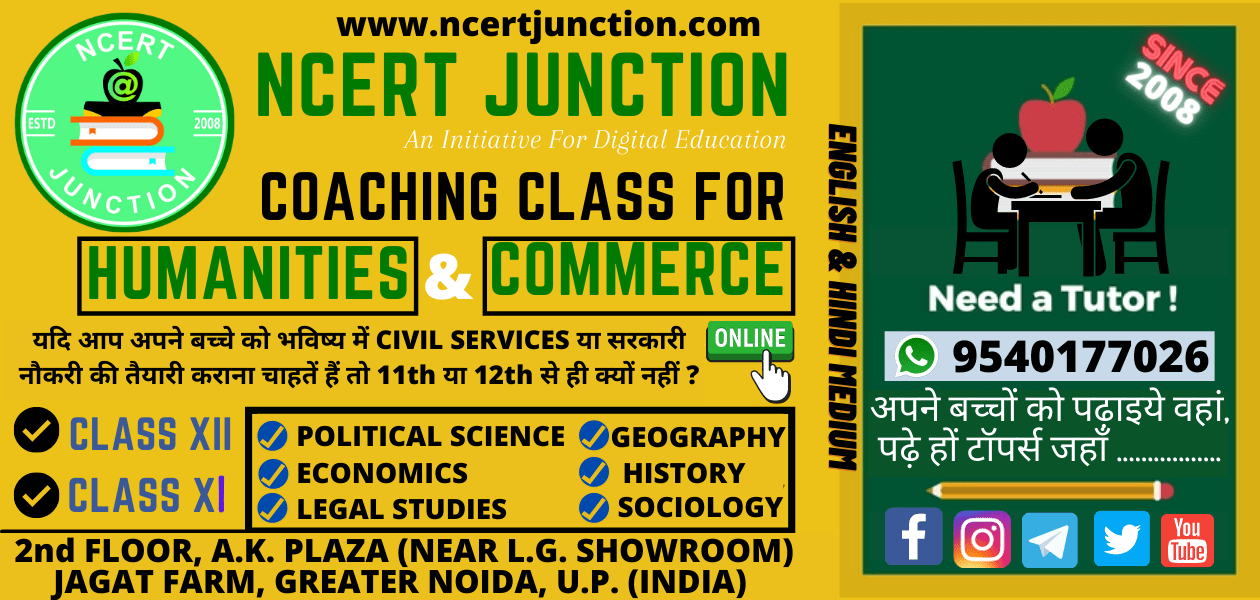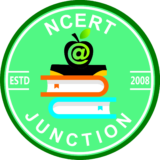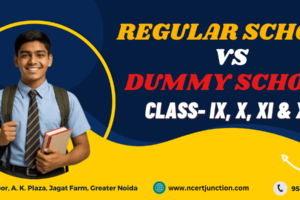HISTORY FOR CLASS 12 NCERT | CBSE | UP | ICSE | RBSC

HISTORY FOR CLASS 12 NCERT | CBSE | UP | ICSE | RBSC
COURSE DESCRIPTION
HISTORY FOR CLASS 12 has 3 books:
- THEMES IN INDIAN HISTORY: PART-1, Which deals with early urban centers as economic and social institution; Story of the First Cities: Harappan civilization, major trends in the political and economic history of the subcontinent; Ashokan inscription and Gupta period land grant system, Issues in social history, including caste, class, kinship, gender and Mahabharata, History of Buddhism: Sanchi Stupa, Vedic religion,
Jainism, Vaishnavism, Shaivism, etc. - THEMES IN INDIAN HISTORY: PART-2, deals with Medieval Society through Travellers’ (Al Biruni, Ibn Battuta, Francois Bernier) Accounts, religious developments; Bhakti-Sufi, new buildings during Vijayanagar period-temples, forts, irrigation facilities & overview of Hampi, Ain-i-Akbari, Mughal court and politics, Akbarnama and Badshahnama etc.
- THEMES IN INDIAN HISTORY: PART-3: This is part of modern history in which we study about the Colonialism and Rural Society; Life of zamindars, peasants and artisans in the late 18th century, EIC (East India Company), It’s revenue settlements, 1857’s Events like Great Revolt, history of hill stations, modern urban centres; Madras, Calcutta and Bombay, The Nationalist Movement (1918 -48), The Nature & leadership of Gandhi’s Movements, The history of 1940’s; Nationalism, Communalism, independence and Partition, Constituent Assembly, Making of the Constitution etc.
-> Through a focus on a series of critical historical issues and debates (class XI) or on a range of important historical sources (class XII), the students would be introduced to a set of important historical events and processes. A discussion of these themes, it is hoped, would allow students not only to know about these events and processes, but also to discover the excitement of reading history.
-> However, practical way of assessing whether the learning objectives have been actualized or not, can be ensured by the way of having stated outcomes. These outcomes have been enumerated against the learning objectives so that the concerned teachers and their students can adopt different kinds of constructive strategies and competency-based assessment techniques. It is also to be understood that the learning objectives and their outcomes are organically linked and complementary to each other.
DETAILED SYLLABUS: GEOGRAPHY FOR CLASS 12 (2021-2022)
CBSE CLASS – XII Theory: 70 Marks Duration:3 Hours Project: 30 Marks
|
Part |
Units |
No. of Periods |
Marks |
|
A |
Fundamentals of Human Geography |
90 |
35 Marks |
|
|
Unit 1: Human Geography |
05 |
30 |
|
|
Unit 2: People |
18 |
|
|
|
Unit 3: Human Activities |
28 |
|
|
|
Unit 4: Transport, Communication and Trade |
24 |
|
|
|
Unit 5: Human settlements |
10 |
|
|
|
Map Work |
05 |
5 |
|
B |
India: People and Economy |
90 |
35 Marks |
|
|
Unit 6: People |
15 |
30 |
|
|
Unit 7: Human Settlements |
10 |
|
|
|
Unit 8: Resources and Development |
30 |
|
|
|
Unit 9: Transport, Communication and International Trade |
15 |
|
|
|
Unit 10: Geographical Perspective on selected issues and problems |
15 |
|
|
|
Map Work |
05 |
5 |
|
|
Total |
180 |
70 Marks |
|
C |
Practical Work in Geography Part II |
40 |
30 Marks |
|
|
Unit 1: Processing of Data and Thematic Mapping |
25 |
15 |
|
|
Unit 2: Field study or Spatial Information Technology |
15 |
10 |
|
|
Practical Record Book and Viva Voce |
|
5 |
Part A: Fundamentals of Human Geography
Unit-1: Human Geography: Nature and Scope
Unit-2: People
- Population-distribution, density and growth.
- Population change-spatial patterns and structure; determinants of population change.
- Population Composition – age-sex ratio; rural-urban composition.
- Human development – concept; selected indicators, international comparisons.
Unit-3: Human Activities
- Primary activities – concept and changing trends; gathering, pastoral, mining, subsistence agriculture,
modern agriculture; people engaged in agricultural and allied activities – some examples from selected countries. - Secondary activities-concept; manufacturing: types – household, small scale, large scale; agro based and mineral based industries; people engaged in secondary activities – some examples from selected countries.
- Tertiary activities-concept; trade, transport and tourism; services; people engaged in tertiary activities – some examples from selected countries.
- Quaternary activities-concept; people engaged in quaternary activities – case study from selected countries.
Unit 4: Transport, Communication and Trade
- Land transport – roads, railways; trans-continental railways.
- Water transport- inland waterways; major ocean routes.
- Air transport- Intercontinental air routes.
- Oil and gas pipelines.
- Satellite communication and cyber space- importance and usage for geographical information; use of GPS.
- International trade- bases and changing patterns; ports as gateways of international trade; role of WTO in
international trade.
Unit 5: Human Settlements
- Settlement types – rural and urban; morphology of cities (case study); distribution of mega cities; problems of
human settlements in developing countries.
NOTE: Map work on identification of features based on 1 to 5 units on the outline/Physical/Political map of the world.
To join Course for Fundamentals of Human Geography for Class XII: Click Here
Part – B: India: People and Economy
Unit-6: People
- Population: distribution, density and growth; composition of population – linguistic, religious; sex, rural-urban and occupational-regional variations in growth of population.
- Migration: international, national-causes and consequences.
- Migration: international, national-causes and consequences.
- Population, environment and development.
Unit-7: Human Settlements
- Rural settlements – types and distribution.
- Urban settlements – types, distribution and functional classification.
Unit-8: Resources and Development
- Land resources- general land use; agricultural land use; geographical conditions and distribution of major crops (Wheat, Rice, Tea, Coffee, Cotton, Jute, Sugarcane and Rubber); agricultural development and problems.
- Water resources-availability and utilization-irrigation, domestic, industrial and other uses; scarcity of water and conservation methods-rain water harvesting and watershed management.
- Mineral and energy resources- distribution of metallic (Iron ore, Copper, Bauxite, Manganese); non-metallic (Mica, Salt) minerals; conventional (Coal, Petroleum, Natural gas and Hydroelectricity) and non-conventional energy sources (solar, wind, biogas) and conservation.
- Industries – types, factors of industrial location; distribution and changing pattern of selected industries-iron and steel, cotton textiles, sugar, petrochemicals, and knowledge based industries; impact of liberalization, privatization and globalization on industrial location; industrial clusters.
- Planning in India- target group area planning (case study); idea of sustainable development (case study)
Unit-9: Transport, Communication and International Trade.
- Transport, Communication and International Trade and airways: oil and gas pipelines; Geographical information and communication net works.
- International trade- changing pattern of India’s foreign trade; sea ports and their hinterland and airports.
Unit-10: Geographical Perspective on selected issues and problems.
- Environmental pollution; urban-waste disposal.
- Urbanization, rural-urban migration; problems of slums.
- Land degradation.
To join Course for India-People and Economy for Class XII: India: People and Economy
Note: Map work on locating and labeling of features based on above units on outline map of India.
Part – C: Practical Work
Unit-1: Processing of Data and Thematic Mapping
- Type and Sources of data: Primary, Secondary and other sources.
- Tabulating and processing of data; calculation of averages, measures of central tendency.
- Representation of data- construction of diagrams: bars, circles and flowchart; thematic maps; construction of dot; choropleth and isopleths maps.
- Data analysis and generation of diagrams, graphs and other visual diagrams using computers.
Unit 2: Field Study or Spatial Information Technology
- Field visit and study: map orientation, observation and preparation of sketch; survey on any one of the local concerns; pollution, ground water changes, land use and land-use changes, poverty, energy issues, soil degradation, impact of floods and drought, catchment area of school, Market survey and Household survey (any one topic of local concern may be taken up for the study; observation and questionnaire survey may be adopted for the data collection; collected data may be tabulated and analyzed with diagrams and maps). Students can be given different topics to get more insight into various problems of society.
OR
- Spatial Information Technology
Introduction to GIS; hardware requirements and software modules; data formats; raster and vector data, data input, editing and topology building; data analysis; overlay and buffer.

Free Download NCERT Books: Geography For Class 12
- Fundamentals of Human Geography, Class XII, Published byNCERT: FREE DOWNLOAD
- India – People and Economy, Class XII, Published byNCERT: FREE DOWNLOAD
- Practical Work in Geography Part II, Class XII, Published byNCERT: FREE DOWNLOAD
Note: The above textbooks are also available in Hindi medium with the same link.
Note: Join our Course For Geography for Class 12th in Greater Noida (Limited Offer to first 5 students only of every new batch)
NCERT JUNCTION is providing Tuition Classes for Geography Class XII in Greater Noida since 2008. It is a Best Coaching Class for Geography because many of our students have topped their schools in this subject also. Now since 2020 we are also providing Online Coaching For Class 12 Geography CBSE, and state board exams. If you are searching geography tutor for class 12 then contact us. We have also proved own self as Best Coaching For UP Board Online.
⇒⇒⇒⇒⇒ Follow us: ⇒⇒⇒⇒⇒
♥ Facebook: – https://www.facebook.com/ncertjunction/
♥ Skype: – https://join.skype.com/Y0n7PswqY6Q7
♥ Twitter: – https://twitter.com/Ncertj
♥ Linkedin: – https://www.linkedin.com/in/ncert-junction/
♥ Telegram: – https://t.me/NcertJunction
♥ Pinterest: – https://in.pinterest.com/junction0696/boards/
♥ Website: – http://ncertjunction.com
♥ Instagram: – https://www.instagram.com/ncertjunction/
♥ Youtube: – https://www.youtube.com/channel/UCzL2Gfk8bnHmkCe358gcAQg?view_as=subscriber
♥ WhatsApp पर +91 95401 77026 से चैट करें : https://api.whatsapp.com/send?phone=919540177026&text=I%27m%20interested%20in%20your%20course%20for%20sale&source=&data=&app_absent=
Call for Online/Offline tuitions for humanities and commerce: 9540177026




